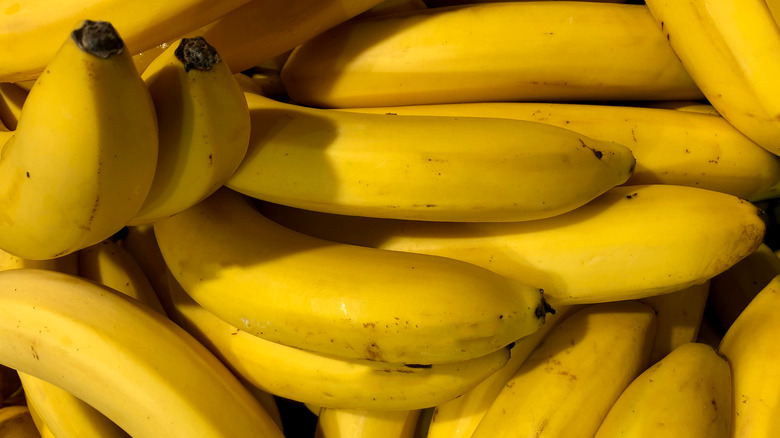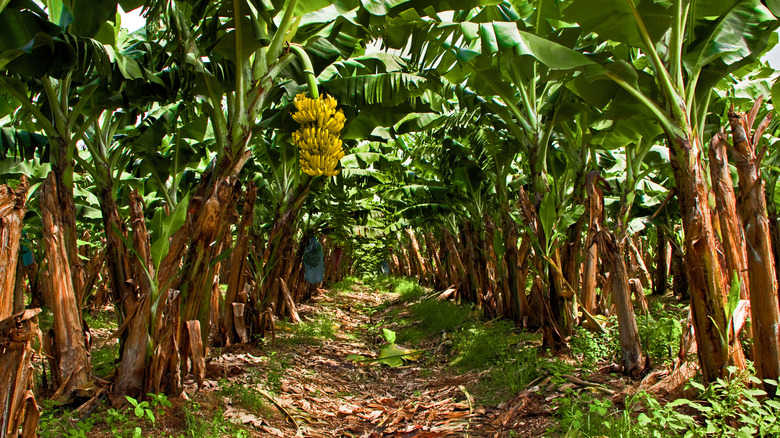The Tragic True Story Of The Banana Wars
The Spanish-American War represented a major turning point in geopolitics. Its end in 1898 saw Spain lose Cuba, Puerto Rico, Guam, and The Philippines (via Library of Congress). With most of the European holdings in the Americas now consisting of smaller islands (with the exception some territories such as French Guiana), the United States was the uncontested power in the New World. With this new realization of a central tenet of the Monroe Doctrine — European colonization would no longer be tolerated in the Western Hemisphere (per Britannica) — came not only de facto imperialism from the American government, but from private enterprises as well.
According to Medium, bananas grew in popularity during the industrial revolution for the nutrients they provided America's workforce. The year 1898 marked the beginning of a campaign by three American fruit companies to secure land in Central and South America, as the countries of these regions were already weakened and unstable from constant political unrest. Their actions, in conjunction with the American government's pursuit of its own interests, were the catalyst for coups, assassinations, and disease that forever changed Latin America.
The rise of the Banana Republics was a dark period for Latin America
Honduras is the most extreme example of what these companies were capable of. To the end of streamlining banana exportation there, the private American companies raised armies to back favorable politicians, built modern infrastructure to speed the transport of goods, and abandoned plantations affected by the fungal Panama Disease (via WorldAtlas). It was the quintessential Banana Republic, but it wasn't the only one. Their efforts elsewhere were often aided by U.S. military intervention across the Caribbean during the early 20th century. These actions ranged from backing Panamanian independence from Columbia (in order to construct the Panama Canal), to the military occupation of Cuba, the Dominican Republic, and Nicaragua.
The relative vacuum of foreign and domestic competition allowed the fruit companies to monopolize trade for decades. The introduction of Communism into the equation only allowed this trend to intensify, as the subsequent rhetoric was a direct threat to their business model of employing impoverished workers (via ThoughtCo.). Such was the case in 1954 when, after the United Fruit company lobbied congress, the elected Communist government of Guatemala was overthrown by CIA-backed rebels. The fruit companies gradually lost their influence during the Cold War, while American motivations for military action changed from profit to ideology. However, the mark they left behind can be inherently felt in Latin America to this day.

